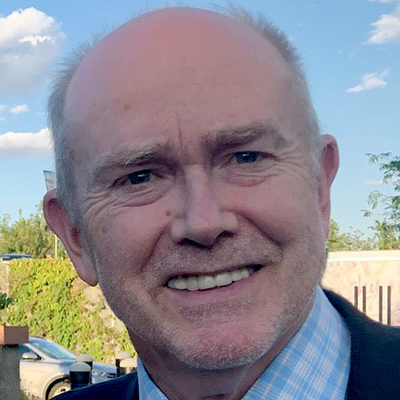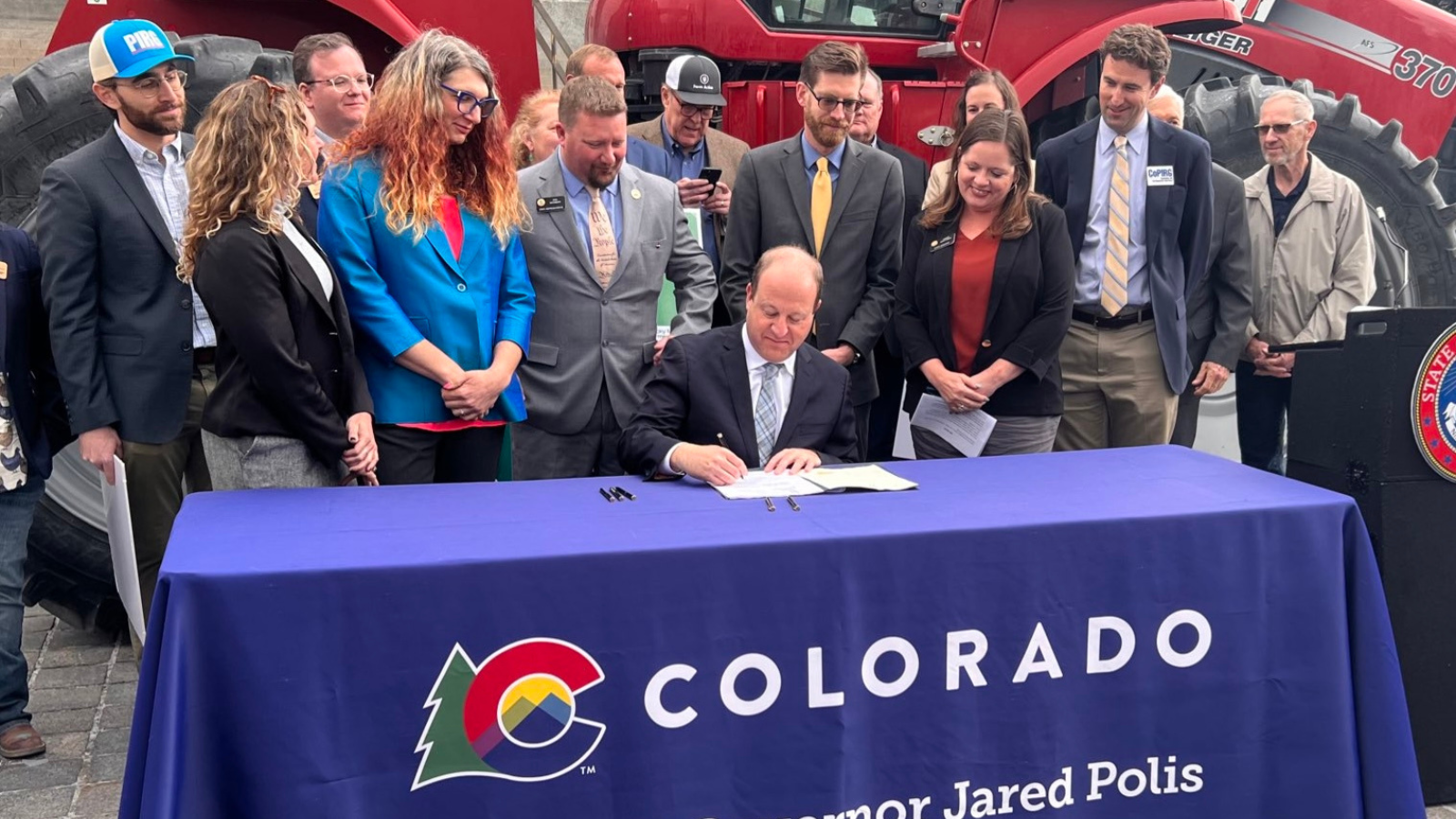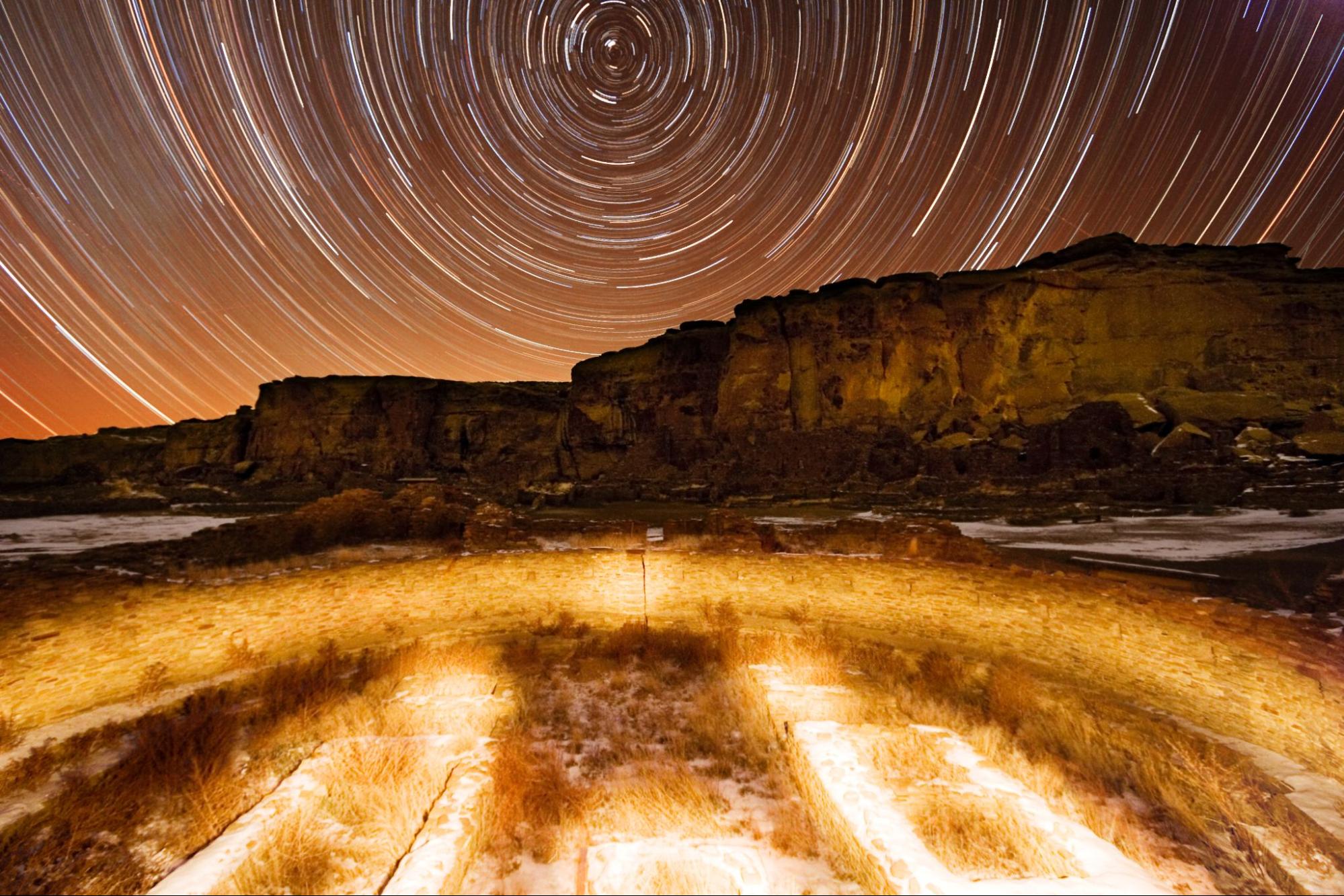
When the stars align
The past month brought us two “great conjunctions.” One occurred up in the night sky, and the other, in Washington, D.C.

Blink and you might’ve missed it. But within a set of COVID relief and year-end spending bills, federal leaders came together to:
- Cut a potent greenhouse gas by 85 percent within the next fifteen years and put our planet on track to avoid half a degree Celsius of warming by century’s end.
- Protect roughly 135 million Americans from surprise medical bills from out-of-network providers.
- Ban anonymous shell companies used to evade taxes, launder drug money and defraud Medicare.
- Provide $2 billion for weatherization assistance that makes American homes more energy-efficient.
- Commit to spend $5 billion more on clean renewables and associated technology, such as electric buses, than on dirty and outdated approaches to powering our lives.
Organizations in The Public Interest Network, including U.S. PIRG, Environment America and Fair Share, and our allies helped win the inclusion of these provisions and more. And for the most part, we didn’t run massive campaigns to do so.
Rather, these victories were the result of making the most of a propitious alignment. Across organizations, our advocates keep an ever-watchful eye on the legislative process, while forging strong working relationships with key decision-makers in both parties and, most importantly, stoking demand for good ideas that make a difference in our lives.
One small but powerful example: Environment America advocates spotted a chance to make the defense spending bill a bit greener by adding language requiring and funding the planting of pollinator-friendly plants around military facilities. Our idea made its way into the final legislation because it’s a good one on the merits, we know the right legislators to champion it and, due to our coordinated advocacy and grassroots outreach work across 22 states to save the bees, we can attest to our idea’s broad appeal.
Likewise, U.S. PIRG and Fair Share were well-positioned for when our window finally opened to ban anonymous shell companies. That’s because both organizations helped found the Financial Accountability and Corporate Transparency (FACT) Coalition dedicated to solving the problem back in 2011, and in the ensuing decade, we never stopped making our case and enlisting powerful allies both inside and outside Congress who helped us seize the moment.
We did not win everything we sought to. Policies ranging from increased funding for clean water infrastructure to better transparency in COVID relief spending eluded us this time around. Environment America helped win an extension of critical clean energy tax incentives, which is a step in the right direction, but we had hoped for a longer extension that would provide more certainty to the renewables industry and potential investors. And while U.S. PIRG helped stop the worst attempts to weaken liability for corporations that expose consumers and workers to COVID-related harms, some businesses got temporary immunity — which we’ll fight to end as soon as possible.
In instances where we did prevail, such as with surprise medical billing, PIRG advocates now turn their attention to educating consumers about this victory and ensuring the strongest implementation of these new protections. And with a closely divided Congress and a new administration on the way, our ongoing work scanning the horizon for “celestial convergences” is about to become that much more important.
So, the work goes on. For now, I offer congratulations and thanks to the many legislators and allies who left no stone unturned in the search for opportunities to do good as the calendar turned to 2021. Special thanks go out to retiring U.S. Sen. Lamar Alexander for championing surprise medical billing reform and corporate transparency efforts.
Topics
Authors
Douglas H. Phelps
President and Executive Director, The Public Interest Network
Doug is President and Executive Director of The Public Interest Network. As director of MASSPIRG starting in 1979, he conceived and helped organize the Fund for the Public Interest, U.S. PIRG, National Environmental Law Center, Green Century Capital Management, Green Corps and Environment America, among other groups. Doug ran the public interest careers program at the Harvard Law School from 1976-1986. He is a graduate of Colorado State University and the Harvard Law School.
Find Out More

Pres. Biden cancels oil leasing where caribou and polar bears roam

Colorado farmers win the Right to Repair their tractors

The 2021 PIRG naughty or nice list: We’ve made a list and checked it twice

